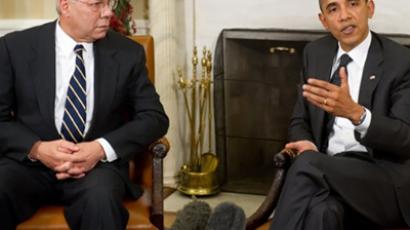New START set for Senate ratification

After countless hearings and endorsements by former US Secretaries of State and top military officials, the New START Treaty is finally headed for a ratification vote in the Senate.
The nuclear arms reduction treaty was initially signed by both US President Barack Obama and Russian President Dmitry Medvedev in April. Will the Senate ratify the treaty? Joseph Cirincione, the president of the Ploughshares Fund said the treaty is very important and boast a real impact on American and Russian nuclear weapons. “It is absolutely imperative, as out top military officials have testified, that the countries with the two largest nuclear arsenals in the world have predictability and transparency over their arsenals,” he explained. “This will make real reeducations in long range weapons. Most importantly, it will reestablish a process of inspections so Russians will be able to see what we’re doing, the US will be able to see what the Russians are doing and finally, it opens the way for greater global action on the other security threats, like North Korea, Iran and nuclear terrorism. Security wise: a very important treaty. Cirincione explained there are enough nuclear weapons between the two nations to inflict hundreds of thousands Hiroshima’s several times over.Given the importance of the treaty, many have wondered what the delay has been in ratifying the treaty.“Quite honestly, most of the opposition to this relatively modest treaty has been political,” he explained. “Part of it is ideological. There’s about 12 to 20 Senators in the Senate that are just opposed to arms control treaties. But, they are the minority, they are losing.” There are also some politicians in the Republican Party using the treaty and anti-Russian fervor for political gain, but they are in the minority.“There is a broad bipartisan consensus that you’ll see at the vote in favor of this treaty that is for arms control, for partnership with Russia, for global engagement. The minority is just that, an angry bitter minority group,” said Cirincione.Some of the opponents to the treaty are the same individuals who opposed the original Reagan START treaty, they simply have not changed. They were in the minority then, and continue to be now.














